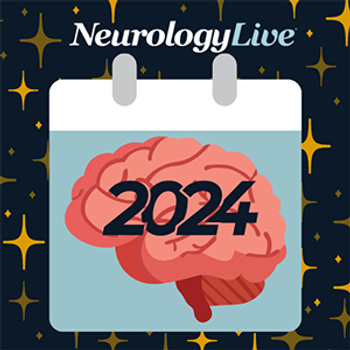
Multiple Sclerosis
Latest News
Latest Videos

CME Content
More News

Neurology News Network for the week ending February 24, 2024. [WATCH TIME: 3 minutes]

Mark Freedman, MD, MSc, Tanuja Chitnis, MD, and Ahmed Obeidat, MD, PhD, contextualize data from large studies regarding the utilization of neurofilament light chain.

Mark Freedman, MD, MSc, Tanuja Chitnis, MD, and Ahmed Obeidat, MD, PhD, discuss how use of biomarkers has affected understanding and assessment of lesion types.

In addition the reductions in the number of new gadolinium-enhancing lesions, frexalimab lowered plasma levels of neurofilament light and CXCL13, a biomarker of inflammatory activity.

Experts from different subspecialties in neurology shared their clinical perspectives for patients on promising therapeutics and expansion of care interventions for 2024.

Here's the latest multidisciplinary MS research published online first in the International Journal of MS Care.

The associate professor of neurology at the University of Colorado School of Medicine talked about promising developments in multiple sclerosis treatment strategies for 2024. [WATCH TIME: 6 minutes]

The staff neurologist and medical director of the Barlo Multiple Sclerosis Program at St Michaels Hospital shared thoughts on the promising advancements in the multiple sclerosis field for 2024. [WATCH TIME: 5 minutes]

Nananda Col, MD, MPH, MPP, FACP, the president and founder of Shared Decision Making Resources, spoke about usage of the MS-SUPPORT tool in a recent study to foster shared decision-making between patients and clinicians in multiple sclerosis.

The professor of neurology at Stony Brook University Medical Center discussed the significance of shared decision making in multiple sclerosis care and promising developments in treatment strategies. [WATCH TIME: 3 minutes]

Throughout the 96-week EVOLVE-MS-1 trial, the majority of patients with MS experienced stable outcomes with diroximel fumarate treatment.

Case Study Reports Positive Impact of Antiviral Therapy Tenofovir in MS, Warranting Further Research
In a case report, an HIV-positive patient with active multiple sclerosis showed reduced disease activity with tenofovir-containing antiretrovirals, suggesting potential MS treatment benefits.

Marisa McGinley, DO, a staff neurologist at Cleveland Clinic’s Mellen Center for MS Treatment and Research, provided forward thoughts on the healthcare reach of neurologists and care access for patients with multiple sclerosis.

An online shared decision-making tool showed feasibility in most patients with multiple sclerosis, with reported improvements in understanding treatment options and adherence to treatment.

The professor in the department of neurology with McGovern Medical School at UTHealth Houston discussed outcomes of a recent study exploring the specificity of T cells in the spinal fluid of patients diagnosed with multiple sclerosis.

A recent study demonstrated that concomitant sleep apnea syndrome may expedite cognitive decline, particularly in attention and concentration, among patients with multiple sclerosis.

The staff neurologist from the Mellen Center for MS Treatment and Research at the Cleveland Clinic provided perspective on recently published research showing geographic disparities to neurologists and multiple sclerosis centers. [WATCH TIME: 3 minutes]

Among the disease-modifying drugs (DMDs) for multiple sclerosis (MS), glatiramer acetate was associated with a lower hazard of hypertension, presenting a potential positive impact on cardiovascular health.

Here's the latest multidisciplinary MS research published online first in the International Journal of MS Care.

Using a sample of 350 pregnancies, the maintenance of natalizumab during pregnancy past the 30th week had both positive and negative impacts, suggesting a risk-benefit discussion may be needed before patients begin treatment.

Over 144 weeks of treatment, patients on CNM-Au8 demonstrated sustained improvements in low contrast vision, working memory, and information processing speed.

The professor in the department of neurology with McGovern Medical School at UTHealth Houston talked about findings from a recent study that investigated T cell specificity in the spinal fluid of patients with multiple sclerosis. [WATCH TIME: 10 minutes]

The associate professor of clinical neurology at University of California, Irvine School of Medicine talked about addressing the critical unmet needs in disability progression among patients with multiple sclerosis. [WATCH TIME: 3 minutes]

Months after the FDA cleared a phase 2 study in myasthenia gravis, KYV-101 is set to be assessed in a diverse cohort of refractory progressive multiple sclerosis.

Over the 12-week study, treatment with famciclovir failed to reduce the frequency of viral shedding, further adding to the complexity of the role of Epstein-Barr virus in MS.
















